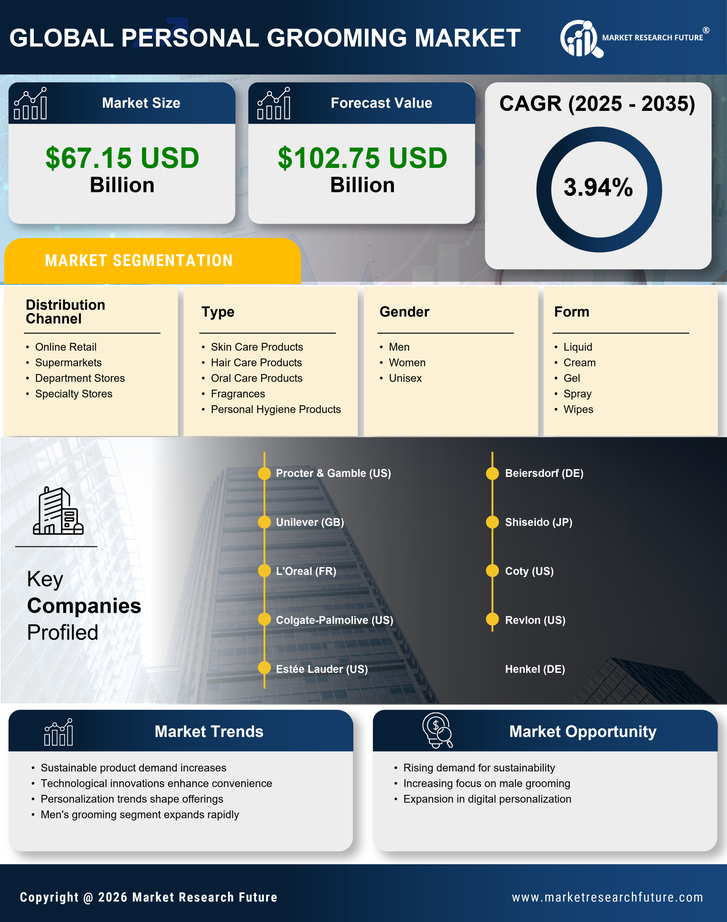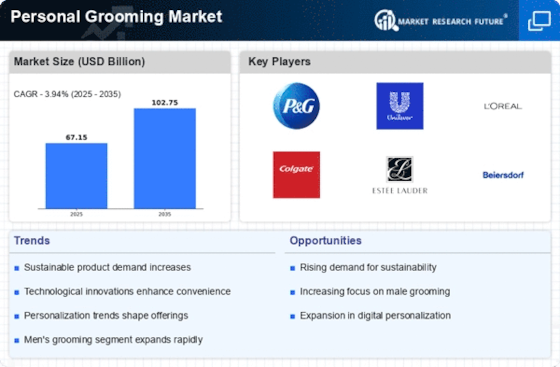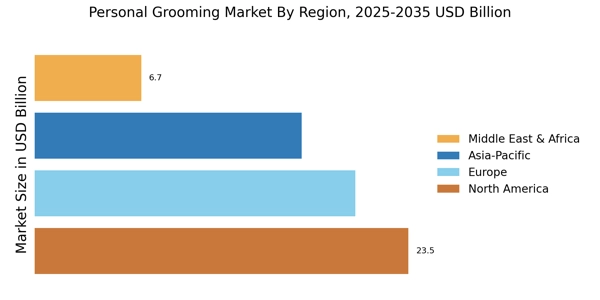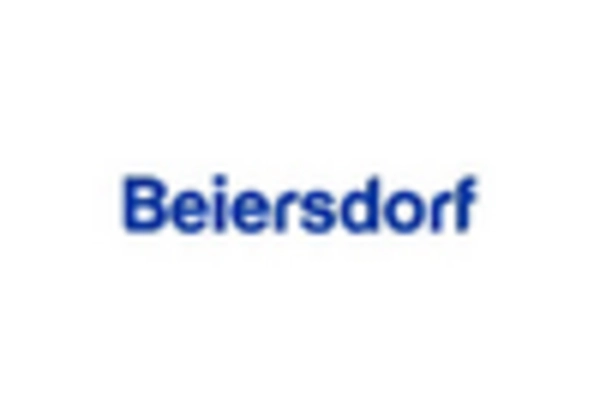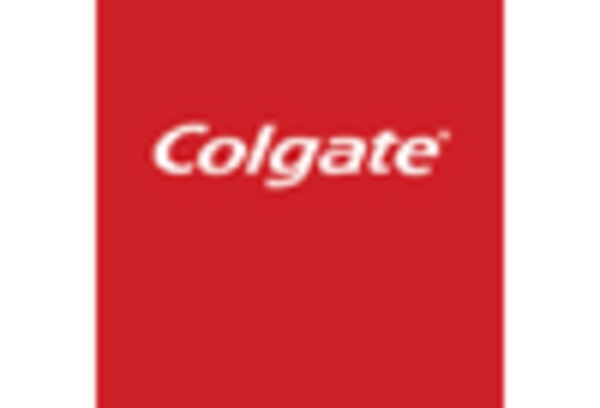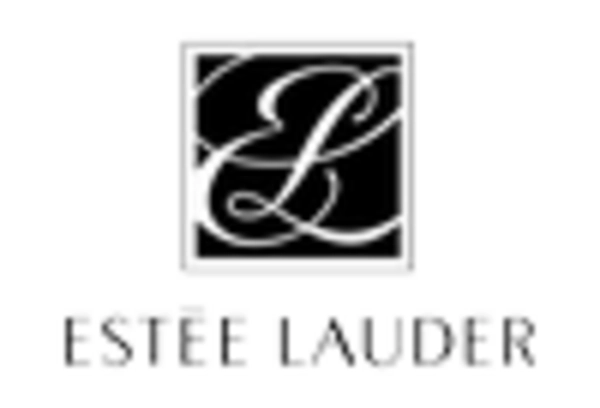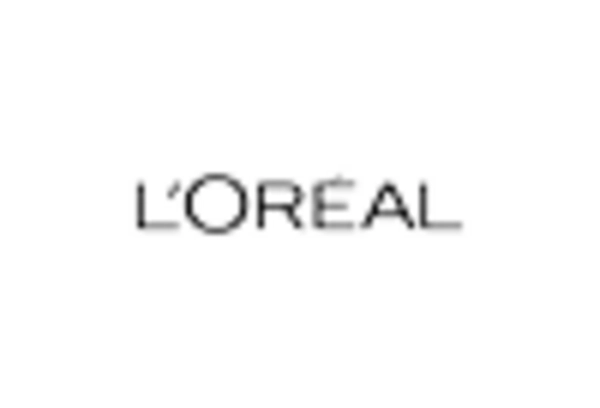Growth of Male Grooming Segment
The growth of the male grooming segment is emerging as a key driver in the Personal Grooming Market. Traditionally, grooming products were predominantly marketed towards women; however, there has been a notable shift in consumer demographics. Men are increasingly investing in grooming products, ranging from skincare to hair care. This shift is supported by market data indicating that the male grooming segment is expected to grow at a significant rate, reflecting changing societal norms and attitudes towards male grooming. The Personal Grooming Market is responding to this trend by expanding product lines specifically tailored for male consumers.
Increasing Awareness of Personal Hygiene
The rising awareness of personal hygiene is a pivotal driver in the Personal Grooming Market. Consumers are increasingly recognizing the importance of maintaining cleanliness and grooming as part of their daily routines. This heightened awareness is reflected in the growing demand for personal care products, which has seen a notable increase in sales. For instance, the market for personal grooming products is projected to reach substantial figures, indicating a robust growth trajectory. As individuals prioritize hygiene, the Personal Grooming Market is likely to benefit from this trend, with consumers seeking innovative and effective solutions to enhance their grooming practices.
Emergence of Natural and Organic Products
The emergence of natural and organic products is reshaping the landscape of the Personal Grooming Market. Consumers are becoming more conscious of the ingredients in their grooming products, leading to a growing preference for items that are free from harmful chemicals. This trend is supported by market data showing a significant increase in sales of organic grooming products. As consumers seek safer and more sustainable options, brands are responding by developing product lines that emphasize natural ingredients. The Personal Grooming Market is thus adapting to meet the demands of a more health-conscious consumer base.
Rising Disposable Income and Urbanization
Rising disposable income and urbanization are contributing factors to the expansion of the Personal Grooming Market. As individuals experience increased financial stability, they are more inclined to invest in personal grooming products. Urbanization further amplifies this trend, as city dwellers often seek convenience and quality in their grooming routines. Market data suggests that regions experiencing rapid urban growth are witnessing a corresponding rise in demand for grooming products. This trend indicates that the Personal Grooming Market is likely to continue flourishing as consumers prioritize self-care and grooming in their daily lives.
Influence of Social Media and Beauty Trends
The influence of social media platforms and beauty trends plays a significant role in shaping consumer behavior within the Personal Grooming Market. Social media has become a powerful tool for brands to engage with consumers, showcasing new products and grooming techniques. This trend has led to an increase in the popularity of beauty influencers, who often drive purchasing decisions. As a result, the market has witnessed a surge in demand for grooming products that align with current beauty trends. The Personal Grooming Market is adapting to these changes, with brands focusing on marketing strategies that leverage social media to reach a wider audience.
